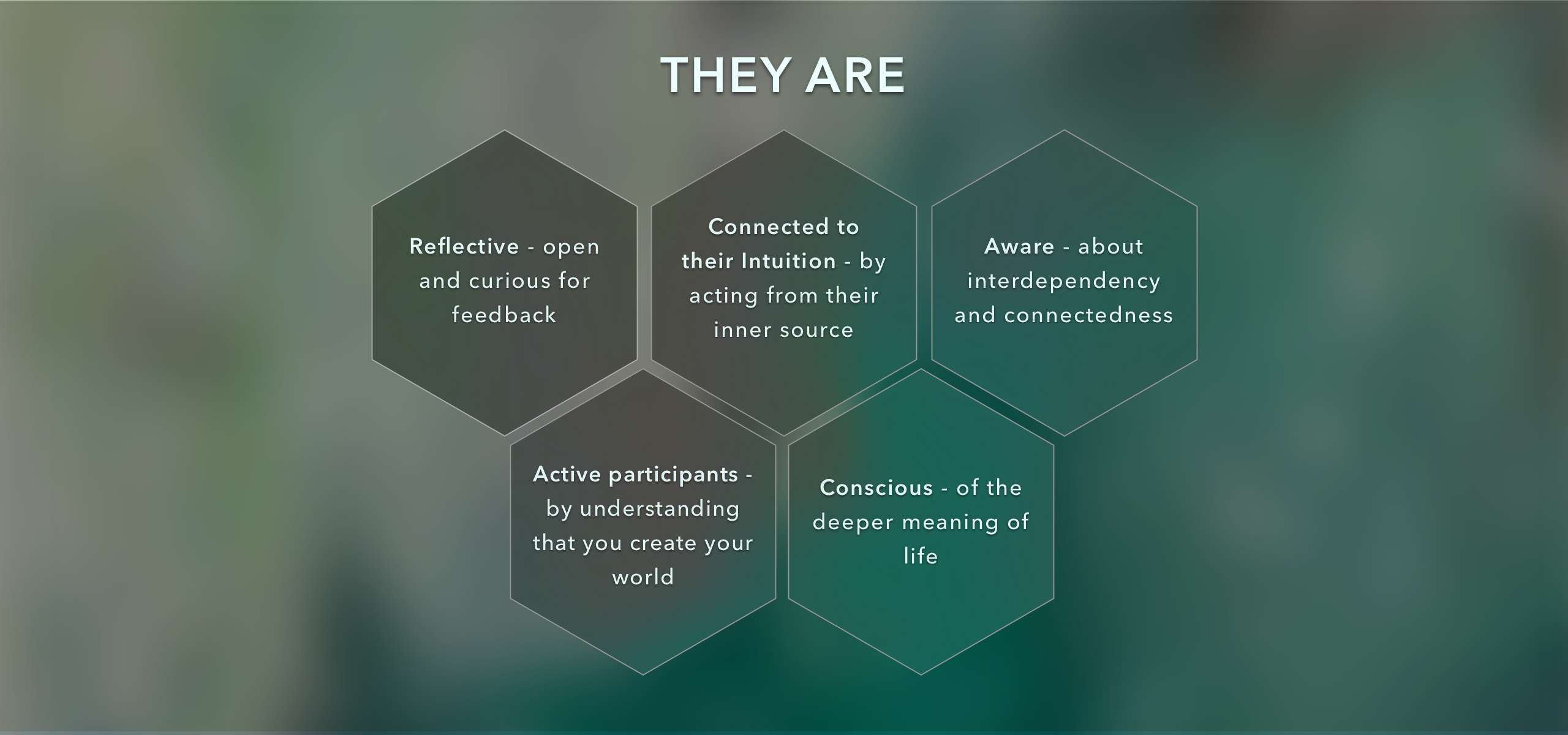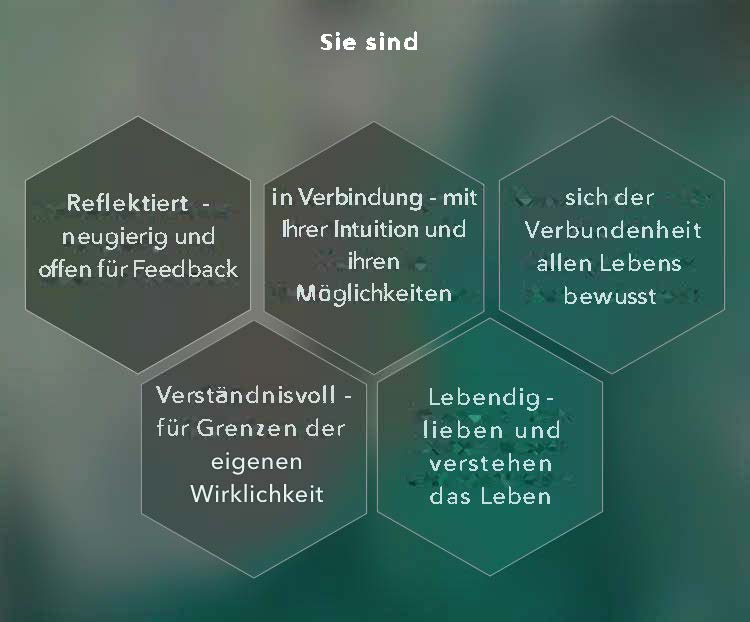Conscious leadership
Be who you really are - be Authentic


What will distinguish your leadership from others in the years ahead?
We know that
Leaders of tomorrow
embrace the world




Those leaders will thrive their organisations in times of constant change and innovations. They will be able to pause, to reflect, to understand, to express themselves and to grow.
My experience as an executive in companies such as Google, Bertelsmann and Lycos Inc., have led to a deep understanding of an interconnected world in which every thought, every feeling and every action has a reaction. "In times of extreme change consciousness and our inner wisdom, where the knowledge of the heart and the mind encounters is becoming increasingly important."
What does leadership have to do with maturity?
In times of digitization today's leaders need to absorb and process more complexity than ever before. They are facing new and major challenges while having to promote innovation and creativity and leading people in a matrix organization with flat or even without hierarchies. In this environment maturity is personal development and playing an important role in the future.
Discussions about leadership are often about singular personality traits such as dominance, focus or emotional intelligence. But leadership is a social phenomenon and as such complex. It's about:
Leadership is social interaction. Everything that happens is interpreted and communicated, and it happens because it is interpreted and communicated. Therefore one-dimensional explanations fall too short. Leadership needs to be effective, accommodate dynamics and absorb the dance of those elements.
This requires, at best, something in the leader which reflects the same complexity in his personality as his multi-dimensional subject: personal development and human maturity. And this can be developed and trained.


About 50 years ago the American developmental psychologist Jane Loevinger made a groundbreaking discovery. She realized that adults can mature further to the same patterns as children. This means that cognitive structures, the relationship with yourself and the interpersonal style are interdependent.
Loevinger called what they saw in their research data "ego development" and recognized that it can be distinguished in ten ego development stages of spiritual and moral skills. Stages of a transformation ladder towards a growing awareness about themselves and the world.
In a world of constant change, it is necessary to be able to switch mentally between different dimensions. This requires a flexible and creative mind. But it is not just the ability to capture and process complexity alone that characterizes a mature person. It is also important that he or she is able to integrate this new perspective into his or her life and actions. You can only reach maturity if you honestly question yourself and reflecting again and again on your worldview.
This is the foundation for conscious leadership which is bringing one’s whole self, with total awareness to the leadership position. It requires authenticity to be who you really are. Conscious leaders focus on the “we” rather than the “me” and realize that their role is to create a culture of trust, care and expansive influence.




To become and to stay a conscious leader requires reflection and challenge from others. It requires disciplined work to explore the most exciting journey which is to yourself.
In addition to my experience as an executive manager in different countries my work is rooted in the methods of self-development (ego development) from Robert Kegan, the U-Theory from Otto Scharmer, the Neuro-linguistic programming (NLP) and facilitation exercises during times of change.